Predation
Predation is a biological interaction where one organism, the predator, hunts, kills, and consumes another organism, the prey. This interaction plays a key role in shaping ecosystems and maintaining the balance of species within them.
Types of Predation
There are several types of predation:
- Carnivory: Predators that primarily feed on animal prey.
- Herbivory: Predators that primarily feed on plant prey.
- Parasitism: Predators that live on or in the host organism, feeding on its tissues without necessarily causing immediate death.
- Cannibalism: Predators that consume individuals of their own species.
Adaptations of Predators
Predators have evolved various adaptations to aid in hunting and capturing prey:
- Sensory adaptations: Enhanced senses such as vision, hearing, and smell to detect prey.
- Physical adaptations: Specialized body structures for capturing, killing, and consuming prey, such as claws, fangs, or beaks.
- Behavioral adaptations: Hunting strategies and techniques, such as ambush, pursuit, or group hunting.
Impacts on Ecosystems
Predation has several significant impacts on ecosystems:
- Regulation of prey populations: Predators help control the population of prey species, preventing overpopulation and maintaining ecological balance.
- Species interactions: Predation can influence the behavior, distribution, and evolution of both predator and prey species.
- Energy flow: Predators transfer energy from prey to themselves and other organisms in the food web, driving the flow of energy through ecosystems.
Study Guide
To understand predation better, consider these study points:
- Define predation and list the different types of predation.
- Explain how predators are adapted for hunting and capturing prey.
- Discuss the ecological impacts of predation on ecosystems.
- Compare and contrast different predator-prey relationships in specific ecosystems.
- Explore the ethical considerations and human impacts on predator-prey dynamics.
Understanding predation is crucial for comprehending the intricate relationships within ecosystems and the dynamics of species interactions.
[Predation] Related Worksheets and Study Guides:
.◂Science Worksheets and Study Guides Eighth Grade. Organic compounds
Study Guide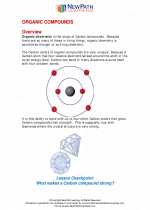 Organic compounds
Organic compounds  Worksheet/Answer key
Worksheet/Answer key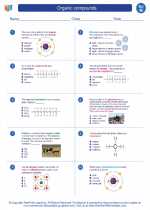 Organic compounds
Organic compounds  Worksheet/Answer key
Worksheet/Answer key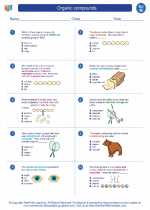 Organic compounds
Organic compounds  Worksheet/Answer key
Worksheet/Answer key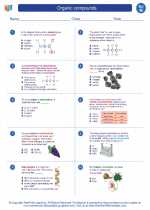 Organic compounds
Organic compounds  Vocabulary/Answer key
Vocabulary/Answer key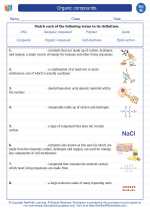 Organic compounds
Organic compounds  Vocabulary/Answer key
Vocabulary/Answer key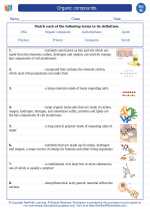 Organic compounds
Organic compounds 

 Worksheet/Answer key
Worksheet/Answer key
 Worksheet/Answer key
Worksheet/Answer key
 Worksheet/Answer key
Worksheet/Answer key
 Vocabulary/Answer key
Vocabulary/Answer key
 Vocabulary/Answer key
Vocabulary/Answer key

The resources above cover the following skills:
Physics: Students will use scientific skills and processes to explain the interactions of matter and energy and the energy transformations that occur.
Thermodynamics: Identify and explain that heat energy is a product of the conversion of one form of energy to another.
Identify and describe the various forms of energy that are transformed in order for systems (living and non-living) to operate: Chemical - Flashlight-Light; Mechanical - Pulleys-Motion; Solar/Radiant - Solar calculator; Chemical - Plant cells.